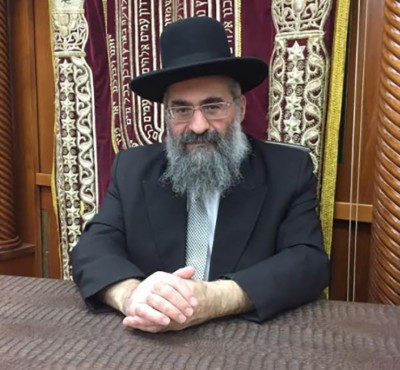
We just spent 2 days and 25 hours in intense prayer for everything from health to wealth and spirituality. But have we really done our part? As we concluded Neilah on Yom Kippur, we said “we have prayed with all our heart…”. What else is left for us to do?
Our Sages have written that it is prohibited to speak between the morning blessing of Yishtabach and Yotzair Ohr. This is surprising, since Yishtabach is the conclusion of a set of prayers while Yotzair Ohr begins a new set. Nevertheless, our sages teach us the consequence of speaking even here. All the more so, our sages tell us that it is prohibited to speak at any point in the Pesukei D’zimra portion, which consists of a connected series of Psalms and blessings. Similarly, it is even more serious to interrupt one’s prayers during the Blessings of the Shema itself. Our sages teach us that keeping silent during these times allows our prayers to reach Hashem unhindered. Silence during prayer is so powerful that it even creates a merit which can protect us during the dangerous times of war.
In the last Parsha of the Torah, Moshe Rabbeinu blesses the tribe of Gad with exceptional prowess in warfare. As the verse states “Poised is [Gad] like a lion, to tear off arm and head (Devarim 33:20).” An explanation given for this verse is that one’s reaction to an attack is usually lifting up the hand to protect his face. Therefore, Gad is blessed with the ability to cut through the enemy’s defense and strike at their target, all in one swoop.
The Medrash tells us that Gad’s tribesman were worthy of this blessing because they were careful in the mitzvah of tefillin, which is placed specifically on the head and arm. The implication there is that if one is not careful with this mitzvah, he may face vulnerability in times of danger. A person should therefore exercise caution and not speak at all while wearing tefilin. This means silence regarding business matters or other personal matters as well. When conquering the land of Israel, the tribe of Gad would fight at the frontlines. They prayed hardest for protection and success, and their prayers were always answered.
The Talmud teaches that the prohibition of speaking while wearing tefilin is more important than the prohibition of speaking while donning the Tzitz. The Tzitz is a unique headpiece worn by the Kohen Gadol, upon which was embossed the name of Hashem. The extreme holiness of this object demanded that the wearer be constantly mindful of its presence on his head. Our Sages explain that since the Tzitz only had Hashem’s name on it in one place, it is not equal to the tefilin in this regard, which has Hashem’s name in 42 places! These 42 places are counted by combining the 21instances on the head tefilin and the 21 instances on the arm tefilin.
In connection to the above, our Sages also quote for us the verse “And all the peoples of the earth shall see that the Hashem’s name is proclaimed over you, and they shall stand in awe of you (Devarim 28:10)”. This is referring directly to the tefilin, which if respected causes the nations of the world to recognize the immense holiness which Hashem Grants to the Jewish nation. We should therefore all strengthen ourselves in the mitzvah of tefillin and, when wearing them, not utter any words other than Tefilah (prayer) and Torah. This will ensure that our prayers will always be answered, and we will no longer need to fear from other peoples. May Hashem bless us so that we are strengthened in this Mitzvah and recognize the great protection of keeping silent during the right times, Amen v’ Amen.
Now That Yom Kippur Is Over, What Else Is Left For Us To Do?
Typography
- Smaller Small Medium Big Bigger
- Default Helvetica Segoe Georgia Times
- Reading Mode











